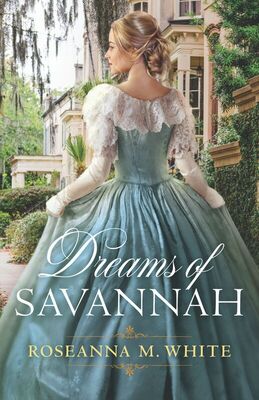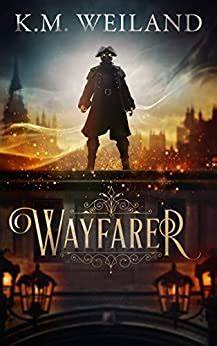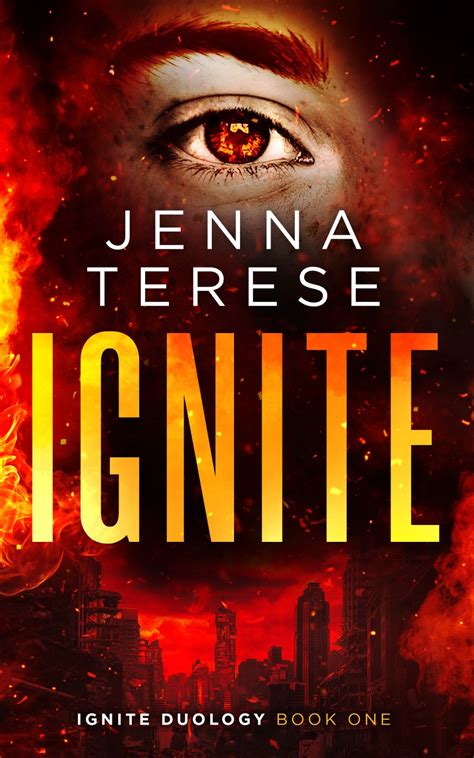|
Summary Cordelia Owens can weave a hopeful story around anything and has long since won the hearts of Savannah's society with her whimsy. Even when she receives word that her sweetheart has been lost during a raid on a Yankee vessel, she clings to hope and comes up with many a romantic tale of his eventual homecoming to reassure his mother and sister. But Phineas Dunn finds nothing redemptive in the horrors of war. Struggling for months to make it home alive, he returns to Savannah injured and changed. The beliefs he once held about slavery and the entire war have been upended, and he's all too sure that he is not the hero Delia seems determined to make him. When the Confederacy deems Savannah a lost cause and the future wavers, Phin and Delia must both decide where the dreams of a new America will take them--and if they will go there together. Positives Dreams of Savannah is a bit slower of a story than I was used to from Roseanna M. White. Considering its predecessors (Shadows Over England, Codebreakers, The Nature of a Lady), it was remarkably short on spies, codebreakers, thieves, or treasure hunters. But it didn’t fall any short of any of her other novels. Delia was an interesting addition for me. I must admit, I tend to like the tough girl heroine. Delia certainly wasn’t that. And yet, her romantic way of viewing the world and active imagination drew me in just as much as any of the other heroines I have related to. It was a good reminder to me that softer heroines have just as much impact as tougher ones. Phin and Luther’s meeting and relationship wove some truths worthy of thought into the story, and then explored those thoughts well through their tension. Negatives None. Conclusion Dreams of Savannah succeeds in bringing both hope and thought into a reader’s life. And it definitely deserves a home on a bookshelf of good reads.
0 Comments
Summary In this heroic gaslamp fantasy, superhuman abilities bring an adventurous new dimension to 1820 London, where an outlaw speedster and a master of illusion do battle to decide who will own the city. Think being a superhero is hard? Try being the first one. Will’s life is a proper muddle—and all because he was “accidentally” inflicted with the ability to run faster and leap higher than any human ever. One minute he’s a blacksmith’s apprentice trying to save his master from debtor’s prison. The next he’s accused of murder and hunted as a black-hearted highwayman. A vengeful politician with dark secrets and powers even more magical than Will’s has duped all of London into blaming Will for the chilling imprisonments of the city’s poor. The harder Will tries to use his abilities to fight crime, the deeper he is entangled in a dark underworld belonging to some of Georgian England’s most colorful characters. Only Will stands a chance of stopping this powerful madman bent on “reforming” London by any means necessary. Unfortunately, Will is beginning to realize becoming a legend might mean sacrificing everything that matters. Positives First off, this book is LONG. With little print. So be prepared. I mean, the premise is brilliant. Superheroes in 1800’s London. What is not to like about that? I also love that each of the heroes in the story had their limitations. Sometimes pretty big limitations. (Not being able to look at light is a pretty big limitation.) It added more conflict and tension to the story since they couldn’t just zip around and do whatever they felt like at the moment. I loved Will’s little adopted family trio he puts together. Rose is fantastic. She stands out as a sidekick. I loved the inclusion of a younger character and the sibling relationship the two of them develop. For the record, Isabella was a well-developed character, too. Her and Will's romance did not at all take the turns I was expecting when they met earlier in the book, and the twist of ending was a creative change. And, dang it, the author went and killed the character I didn’t want killed! Negatives I had a love-hate relationship with how she spelled the characters’ dialects out. On one hand, I loved it because I could hear exactly how they talked in my head. Then, after a while, it just got a little distracting. They started using catchphrases that I was unfamiliar with and that I struggled to figure out what they meant using the context. This may just be a problem on my part, other people might read it and be able to figure out exactly what they meant. But from some of my own research a while back, people either love or hate spelled-out dialects. I’m somewhere in the middle on this one. The message was a little bit blatant, at least to me. It could have been more subtle and I wouldn’t have minded—but that didn’t detract from the message AT ALL, and the theme was very well-developed throughout the story. So neither one of those were truly negatives. Just kind of “eeh” things, I guess. Conclusion Wayfarer was definitely worth the read, and I’m looking into another of her novels to add to my shelf. Summary
Not all illusions happen on the stage. Wren Lockhart, apprentice to master illusionist Harry Houdini, uses life on a vaudeville stage to escape the pain of her past. She continues her career of illusion after her mentor’s death, intent on burying her true identity. But when a rival performer’s act goes tragically wrong, the newly formed FBI calls on Wren to speak the truth—and reveal her real name to the world. She transfers her skills for misdirection from the stage to the back halls of vaudeville, as she finds herself the unlikely partner in the FBI’s investigation. All the while Houdini’s words echo in her mind: Whatever occurs, the crowd must believe it’s what you meant to happen. She knows that if anyone digs too deep, secrets long kept hidden may find their way to the surface—and shatter her carefully controlled world. Set during one of the richest, most vibrant eras in American history, this Jazz Age novel of illusion, suspense, and forgotten pasts is perfect for fans of The Magician’s Lie, challenging all to find the underpinnings of faith on their own life’s stage. Positives Finally, a book that treats a non-girly girl as more than a punchline. Her unique interests intrigued me. But the longer the story went on, I related a lot to Wren’s character and enjoyed how they portrayed her just being herself, whether that was in full fledged stage costume or a comfortable dress at home. I also enjoyed that they made her smart and resourceful. So often, girls in books are only there to be rescued by the main man. While Wren did need rescued every so often, it wasn’t because she was weak or incapable. All in all, she had some unique skills and traits, and she made the book the experience that it was. I could not have imagined who the culprit was. The story pointed in the complete opposite direction, then smack in the middle new information came to light that made me doubt the villain it had set up. By the time the climax rolled around, I was taken completely by surprise—which was perfect. The setting is very vibrant and now has me wanting to include the twenties in a novel of my own sometime. I mean, it's a book about illusionists! How cool is that? Negatives None. Conclusion The Illusionist’s Apprentice truly does steal the show. |
Rachel's Reads
Hi there! Rachel again. Check out this section for book reviews and cover reveals of some of my favorites! Archives
June 2023
Categories
All
|



